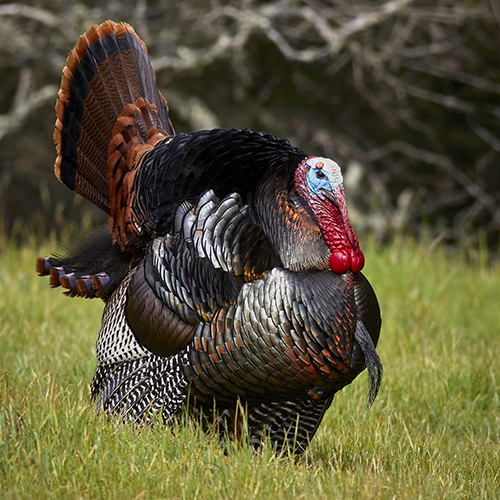
BY HANNES THUM
Some years ago, I began to hear about an author named Joe Hutto who had written several books documenting his time living amongst wild animals. As I began to track down some of his writing, I found it fascinating to learn that he had lived for long periods of time with, for instance, mule deer, bighorn sheep, and even wild turkeys.
I ended up watching (and re-watching, many times) a PBS Nature episode about Hutto and the year or so that he spent living with a couple dozen wild turkeys in the remote woods of Florida. The Nature episode is called “My Life as a Turkey” and if there’s one thing that I can say about it, it is this: it completely upended my perspective on humans and the way that we study other animals.
It certainly shook up my understanding of how much I do not know about this world.
“My Life as a Turkey” and the book that he wrote about the same time period, called “Illumination in the Flatwoods,” tells the story of how Hutto spent a year living in a cabin in the wilds of Florida with a group of turkeys that he raised from eggs. During that year, his relationship with the turkeys was so immersive and so complete that he interacted with no other human and spent virtually all of his waking hours (and some of his sleeping hours) in the presence of these turkeys, exploring the woods together.
It’s hard for me to put my own words into a description of what seems to have taken place during his year with turkeys, but it seems fair to say that Hutto broke down more of the barriers between two species than most of us would have imagined possible. To say that the family of turkeys accepted him as one of their own is probably a close description of what occurred, but even that statement fails to convey the uniqueness of this way of studying nature.
To hear the way Hutto describes that time, or his time with other species in other locations, is to really question what it is we do or do not know about how animals behave. Or what is on their minds.
The science of animal behavior is called ethology. And there’s a term that often comes up in ethology called “umwelt” – the concept of umwelt essentially describes how another animal experiences the world around it, and the implication is that we can never fully understand another’s full experience.
One of the more powerful statements that Hutto relays has stuck with me: “We do not have a privileged access to reality.”
I’ve asked myself many times since what it would be like, or what it would take, to truly understand another animal. Hutto has shown us that at least some species will tolerate the long-term presence of a human in their midst (his time living with mule deer in Wyoming lasted almost seven years). But, even with that sort of close contact, there seems to be a limit of how far we can reach into another animal’s mind.


